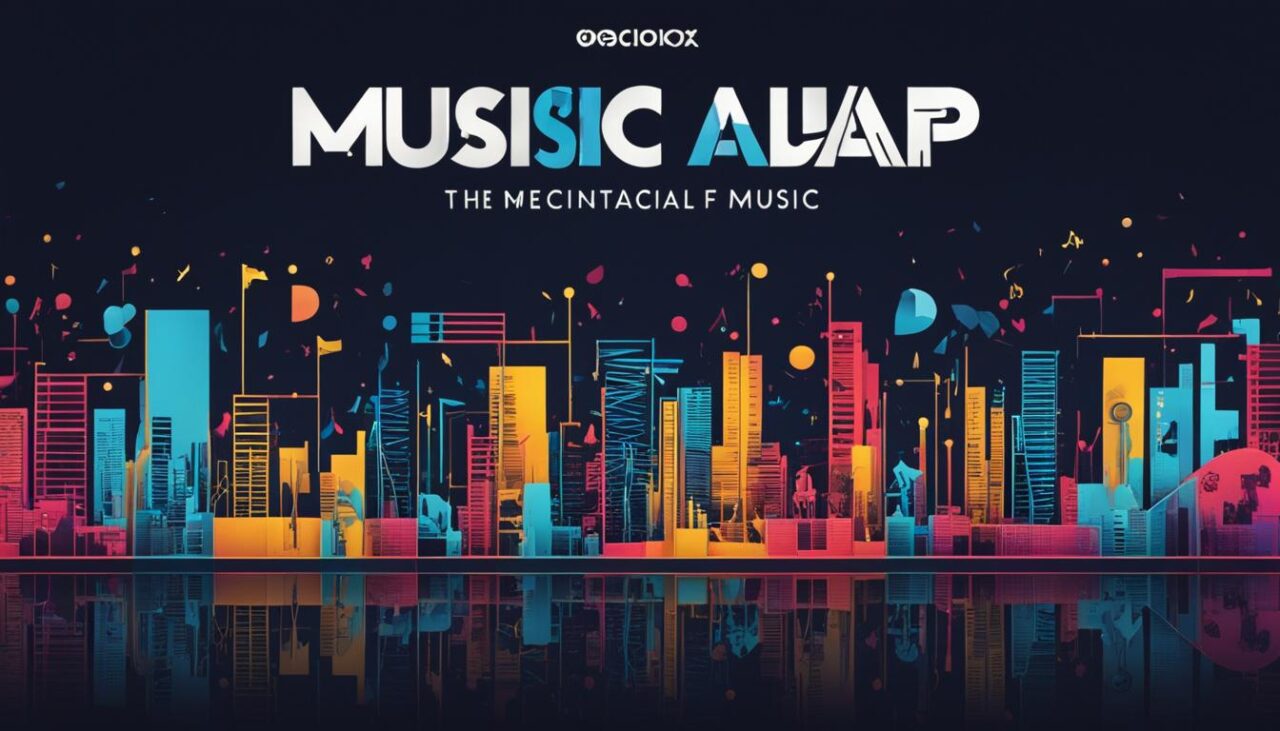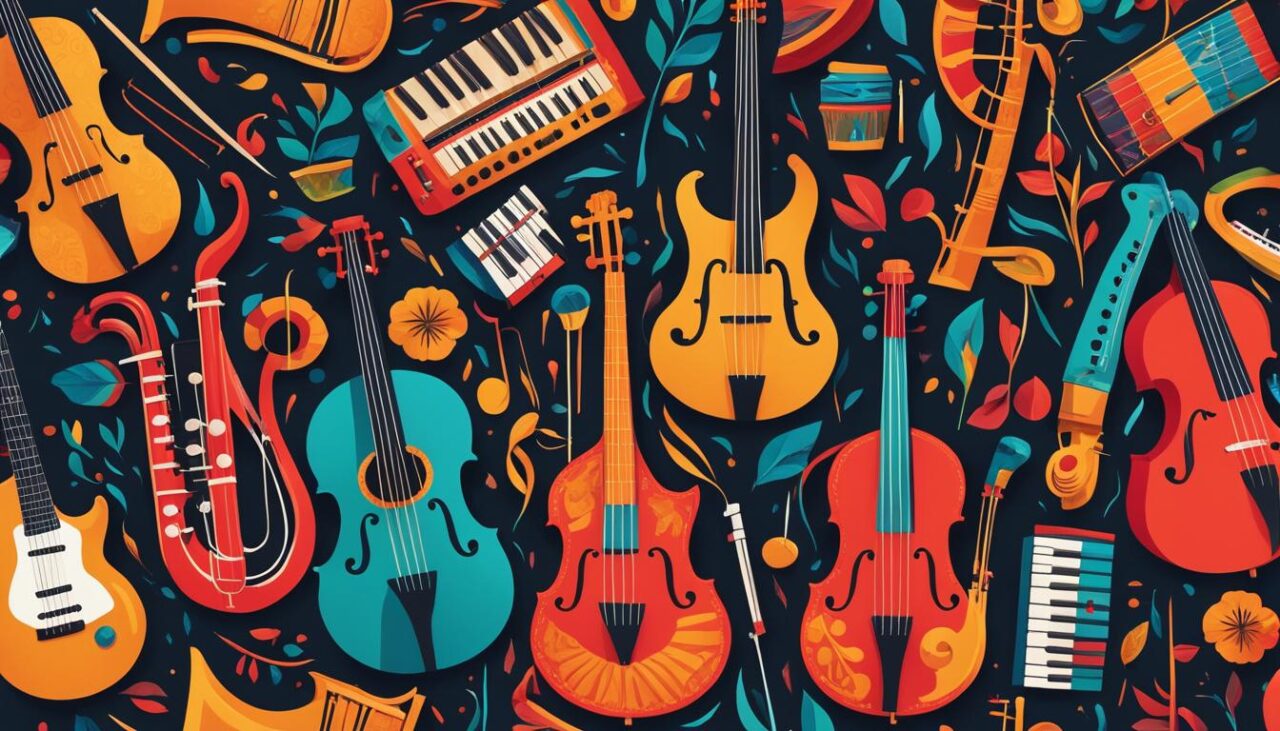Music has been an integral part of human expression throughout history. The evolution of music genres reflects the cultural and societal changes that have shaped our world. From classical melodies to modern pop beats, music has always been there to connect us with our emotions and each other. This section will explore the rich tapestry of music genres, tracing their history and evolution, as well as examining the global impact they have had on our lives.
In this section, we will delve into the intricacies of music genres, including the roots of different styles, the cultural significance of music, and the impact of music technology. We will also explore the nuances of the music business and the trends that guide the industry. Through our exploration, we hope to offer insights into the intrinsic nature of music and how it has influenced the world we live in today.
The Evolution of Music Styles
Music is a dynamic and constantly evolving art form that has undergone multiple transformations throughout history. From medieval chants to contemporary hip-hop, each music style has a unique story and evolution that sheds light on the cultural and historical context of its creation.
The origins of various music styles can be traced back to specific regions and eras, each representing a distinct creative expression of its time. For instance, the classical compositions of Mozart and Beethoven emerged in the 18th and 19th century Europe, while ragtime and blues roots can be traced back to African American communities in the United States.
As time progressed, these music styles intermingled and cross-pollinated with each other, giving birth to new genres. The advent of mass media and technology further facilitated this cross-pollination, enabling the dissemination of music styles across borders and geographies.

Rock and roll, for instance, emerged in the 1950s as a fusion of country music, blues, and rhythm and blues. This style of music represented the youthful rebellion and anti-establishment ethos of the time, propelling it into a global phenomenon.
Similarly, hip-hop originated in African American and Latino communities in the Bronx, New York, in the 1970s, before becoming a dominant force in the mainstream music industry. Its fusion of genres such as funk, jazz, and soul, combined with distinctive vocal and rhythmic characteristics, contributed to its popularity and cultural significance.
Understanding the evolution of music styles not only provides insight into the diversity and richness of music culture but also highlights the profound impact it has on society and individuals. Through the exploration of different music styles, we can appreciate the historical and cultural context of music, recognize the transformative power of music, and appreciate the universality of its expression.
The Cultural Significance of Music
Music is more than just a form of entertainment; it also serves as a reflection of cultural identity, traditions, and societal values. In fact, music has played a crucial role in uniting communities, preserving cultural heritage, and promoting global understanding.
From the mesmerizing rhythms of African drumming to the haunting melodies of Indian classical music, music cultures around the world offer a fascinating glimpse into the diverse ways in which music is used to express emotions, tell stories, and connect people. Music acts as a powerful medium of communication and expression, transcending language barriers and fostering cross-cultural exchange.

“Music is the universal language of mankind.”
– Henry Wadsworth Longfellow
As a reflection of cultural identity and traditions, music often embodies the values, beliefs, and customs of a particular community. For instance, Mariachi music, a genre that originated in Mexico, is associated with traditional Mexican celebrations such as weddings, quinceañeras, and Mexican Independence Day. Similarly, the music of the Maoris, an indigenous people of New Zealand, is infused with the sounds of nature, reflecting their profound connection with the land and ancestral spirits.
Overall, the cultural significance of music cannot be overstated. From uniting communities to promoting global understanding and preserving cultural heritage, music is an indispensable part of human experience and a testament to the rich diversity of global cultures.
Understanding Music Psychology
Music has a profound impact on our emotions, cognition, and overall well-being. Research in music psychology has provided insight into the ways in which music affects our brain and behavior.
Studies have shown that our emotional response to music is linked to brain regions involved in processing emotions, such as the amygdala and hippocampus. Music can impact our mood, reduce stress and anxiety, and even alleviate pain.
Moreover, music has a unique ability to evoke memories and associations, making it a powerful tool for therapy and personal growth. By tapping into our emotions and memories, music can help us process difficult experiences and emotions.
Understanding the intricate relationship between music and the human psyche is essential for both musicians and music therapists. By harnessing the therapeutic and transformative effects of music, we can promote well-being and personal growth.

Music Technology and Innovation
Music technology has come a long way since the days of analog recordings and vinyl records. The advent of digital music has revolutionized the entire industry, making it easier to create, produce, and distribute music. In recent years, advancements in AI and machine learning have also paved the way for new opportunities in music creation and consumption.
The Evolution of Music Technology
Music technology has been evolving rapidly over the last few decades. The introduction of the first digital audio workstation (DAW) in the 1980s marked a turning point in the industry, making it possible for music producers to record and edit music using computers. This was followed by the introduction of MIDI (Musical Instrument Digital Interface) in the 1990s, which allowed electronic instruments to communicate with each other.
With the rise of the internet and streaming platforms, music consumption has also undergone a massive change. Digital streaming platforms have made it possible for anyone to access millions of songs with just a few clicks. This has not only made music more accessible but has also opened up new opportunities for musicians to reach a wider audience.
The Future of Music Technology
The future of music technology looks promising, with new innovations constantly being developed. AI and machine learning are already being used to create music, with software programs that can analyze music and generate new compositions. Virtual reality and augmented reality are also being explored as new platforms for music consumption and performances.
Looking ahead, it's clear that technology will continue to play a significant role in shaping the future of music. As musicians and industry professionals continue to explore new possibilities, we can expect to see even more exciting innovations on the horizon.
“There are no rules in making music anymore. It's all available, and it's all possible.” – Thomas Bangalter
Navigating the Music Business
In today's digital age, the music industry has undergone a massive transformation. With streaming platforms dominating the market, musicians and industry professionals must navigate a complex web of stakeholders, trends, and challenges to achieve success.
One of the most significant trends in the music business is the rise of social media as a powerful marketing tool. Musicians can now connect directly with their fans and build a loyal following through platforms like Instagram, Twitter, and TikTok. However, with millions of artists vying for attention, standing out from the crowd can be a daunting task.
Another key challenge facing the industry is the issue of fair compensation for artists. While streaming platforms offer unprecedented access to global audiences, many musicians struggle to make a living wage due to low royalty rates. This has led to ongoing debates within the industry about the need for a fairer distribution of revenue.
Despite these challenges, there are many exciting opportunities for musicians and industry professionals in the ever-evolving music business. From innovative marketing strategies to diverse revenue streams, those who can adapt to the changing landscape can thrive in this dynamic industry.
Conclusion
As we conclude our exploration of music genres, we have gained a deeper understanding of the diverse cultural, historical, and psychological dimensions of music. From the classical symphonies of the past to the contemporary beats of today, music genres have played a significant role in shaping our cultural heritage and expressing our identities.
By unraveling the evolution of music styles, we have uncovered the complex interplay between artists, genres, and societies. We have seen how music serves as a powerful medium of communication and unites people across cultural boundaries.
Moreover, we have explored the profound impact that music has on our emotions, cognition, and well-being. Music can evoke a range of emotions, from joy and happiness to sadness and grief. We have also seen how music can be used as a tool for therapy and personal growth.
Looking ahead, the future of music remains ripe with possibilities, thanks to the rapid evolution of music technology and the ever-changing trends in the music business. As we embrace these changes, we must continue to value the cultural roots and historical significance of various music genres.
In conclusion, music genres embody the rich tapestry of human creativity, imagination, and expression. They serve as a testament to our shared cultural heritage and inspire us to connect with one another in meaningful ways.







